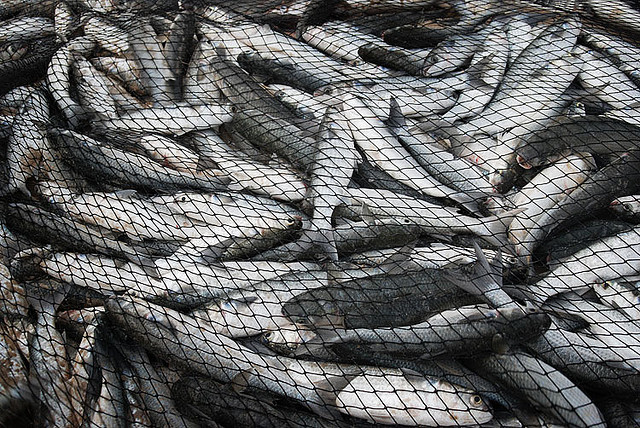 Grace,
Grace,  discipleship,
discipleship,  gain,
gain,  pain
pain  Thursday, March 14, 2019 at 04:00AM
Thursday, March 14, 2019 at 04:00AM  I ran into this guy at the grocery. He was ripped. I could tell by his gym shorts and spandex shirt. I couldn’t help but staring: he had (maybe) 5% body fat, uber-cool tattoos up one arm, and salt’n’pepper brown hair. This guy was an absolute Adonis, and he caught me staring.
I ran into this guy at the grocery. He was ripped. I could tell by his gym shorts and spandex shirt. I couldn’t help but staring: he had (maybe) 5% body fat, uber-cool tattoos up one arm, and salt’n’pepper brown hair. This guy was an absolute Adonis, and he caught me staring.
“Hey, man. What’s up?”
“Um, yeah. I won’t lie: you’re really fit, and that makes me feel a bit self-conscious.” A bit? I’m a puffy, pear-shaped suburbanite on the north side of 50—way to the north.
“Well, thanks. You know, I own a gym: you could shape up in no time.”
Call it the ultimate impulse-buy, but right there in the baked goods aisle the guy sold me a six-month membership (owner’s discount, he said). He pulled out his phone, swiped my debit card, and charged me his fee before either of us got to the checkout lane.
It took a day or two, but since I’d already spent the money (and before my wife saw the charge) I found my best cut-off sweat pants, my favorite XL T-shirt, and drove to the gym. I took a deep breath and pulled the door open. I should have turned around right there. The mural on the lobby wall shouted in four-foot letters, “NO PAIN, NO GAIN.” Then I heard someone scream. The guy at the grocery store didn’t say anything about pain.
Forget spoilers, let’s just fast-forward to the climax: I’m still a puffy, pear-shaped guy. He sold me the membership without a word about the work, because the product looked good. I had no idea about the paining and the gaining.
Right: so maybe I made this up (or did I?).
Certainly there are segments of the church that want to make following Jesus sound like boot camp. The tougher the better. “None of this greasy-grace,” says the Drill Sargent. “God wants everything you have, and if you’re not willing to pay the price, don’t waste your time.” Call it Xtreme Faith. Sweat equals holiness.
Just as surely there are other segments of the church focusing on the promise of Heaven. “There’s nothing you can do to earn God’s love and forgiveness,” says the Cruise Director. “God loves you just the way you are.” Call it Win-the-Lottery Faith, holiness optional. (In this second case, I suspect that one reason this part of the church sticks with heaven-preaching is because we can find ourselves changed in an instant—an instant that comes after we breathe our last.)
Of course, both presentations are overstatements; the call to follow Jesus is completely different. We can’t get mixed up with a self-sacrificing God without embracing death to ourselves. And this is displeasing to both camps: we don’t become Xtremely Faith-Fit by feeling the burn of our own efforts, and neither to we experience deep change by remaining in the baked goods aisle. The radical truth of the gospel reveals a people hooked up with a dangerously-loving God who is not impressed by our own righteousness, nor is he willing to let us remain comfortably self-serving. God doesn’t have a gym, but neither does he have a spa.
Here’s how Paul and Barnabas wrapped up their first missionary expedition:
But Jews came from Antioch and Iconium, and having persuaded the crowds, they stoned Paul and dragged him out of the city, supposing that he was dead. But when the disciples gathered about him, he rose up and entered the city, and on the next day he went on with Barnabas to Derbe. When they had preached the gospel to that city and had made many disciples, they returned to Lystra and to Iconium and to Antioch, strengthening the souls of the disciples, encouraging them to continue in the faith, and saying that through many tribulations we must enter the kingdom of God. And when they had appointed elders for them in every church, with prayer and fasting they committed them to the Lord in whom they had believed. (Acts 14:19-23, ESV)
Did you catch the content of Paul’s “encouraging” message? Through many tribulations we must enter the kingdom of God. This incident must have been formative in Paul’s life of faith. Years later he encourages his protégé, Timothy:
You, however, have followed my teaching, my conduct, my aim in life, my faith, my patience, my love, my steadfastness, my persecutions and sufferings that happened to me at Antioch, at Iconium, and at Lystra—which persecutions I endured; yet from them all the Lord rescued me. Indeed, all who desire to live a godly life in Christ Jesus will be persecuted.” (2 Timothy 3:10-12)
Timothy’s maturity was no accident; it was an inevitable result.
Transformation isn’t our task, but it involves our compliance. We present ourselves to the pressure of the Potter’s strong hands. Dallas Willard says it differently, and better:
A part of our problem with understanding hell comes from the way we think about heaven. We think about heaven as some kind of comfortable resort, but the greatest thing about heaven is going to be the presence of God. He has allowed us to avoid him here on earth in some measure if we want to, but if you go to heaven, God’s the biggest thing on the horizon. You’re no longer going to be able to avoid him. And that would be the supreme torture if you haven’t gotten over thinking of yourself as God. That’s why I sometimes say that the fires of heaven burn hotter than the fires of hell.
 Monday, July 25, 2016 at 02:58PM
Monday, July 25, 2016 at 02:58PM  Discipleship is the great calling of the church, and the only soil that grows disciples is a local church culture of spiritual formation. Every other ministry of the church can (and should) grow from this soil.
Discipleship is the great calling of the church, and the only soil that grows disciples is a local church culture of spiritual formation. Every other ministry of the church can (and should) grow from this soil.
But here's the challenge: each church already has an existing culture; any attempt to change the mixture of the “soil” will require the deep, patient work of tilling, fertizing, and weeding. Culture change is neither a tactic nor a strategy: it is a transformation. Peter Drucker famously observed, “Culture eats strategy for lunch.” He should have said, “breakfast, lunch, and dinner” because the prevailing culture in any organization is the great unspoken factor in ministry. (Note to church planters: start here, because by the time your church is two years old, church culture is beginning to produce fruit, either good or bad.)
Issues of spiritual formation and discipleship are not questions of planning, method, or even teaching—they are hardly even questions at all. Spiritual formation and discipleship are more like horticulture than education. The ground is prepared, seeds are selected and planted, weeds are tended as they arise, and the harvest can seem like a distant dream. But good soil brings great harvests. Success in making disciples is not (at first) measured quantitatively, but qualitatively.
Here are the kinds of questions we should be asking: Are the people of our church becoming more like Jesus? Do we even think it’s possible to be conformed to the image of Christ? Do our leaders think it's possible? Who should do the work of making disciples? How does spiritual growth interact with the metrics of attendance and finances? Is my church's current cultural model sustainable apart from outside instruction or motivation? If our facilities and resources vanished, could our church continue to exist?
Being a disciple—and making disciples—is where personal growth and church life intersect. So (together) we should all ask these questions. Why not bring them up at your church?
 Monday, August 10, 2015 at 11:17AM
Monday, August 10, 2015 at 11:17AM  Remember the story when Jesus and Peter go fishing together? It’s one of those gospel accounts we think we know: we’ve heard it before but the details seems to run like watercolor. The images are so vague we come away with equally vague ideas—Jesus is smarter than Peter; we’re called to become fishers of men; don’t run in the aisles or don’t wear a hat in church.
Remember the story when Jesus and Peter go fishing together? It’s one of those gospel accounts we think we know: we’ve heard it before but the details seems to run like watercolor. The images are so vague we come away with equally vague ideas—Jesus is smarter than Peter; we’re called to become fishers of men; don’t run in the aisles or don’t wear a hat in church.
Now it happened that while the crowd was pressing around Him and listening to the word of God, He was standing by the lake of Gennesaret; and He saw two boats lying at the edge of the lake; but the fishermen had gotten out of them and were washing their nets. And He got into one of the boats, which was Simon’s, and asked him to put out a little way from the land. And He sat down and began teaching the people from the boat. When He had finished speaking, He said to Simon, “Put out into the deep water and let down your nets for a catch.” Simon answered and said, “Master, we worked hard all night and caught nothing, but I will do as You say and let down the nets.” When they had done this, they enclosed a great quantity of fish, and their nets began to break; so they signaled to their partners in the other boat for them to come and help them. And they came and filled both of the boats, so that they began to sink. But when Simon Peter saw that, he fell down at Jesus’ feet, saying, “Go away from me Lord, for I am a sinful man!” For amazement had seized him and all his companions because of the catch of fish which they had taken; and so also were James and John, sons of Zebedee, who were partners with Simon. And Jesus said to Simon, “Do not fear, from now on you will be catching men.” When they had brought their boats to land, they left everything and followed Him. (Luke 5:1-11)
Let’s take ten minutes with this account and see what we can move from watercolor to the sharp clarity of oil. Here are eight details that stand out in sharp relief:
Jesus, the intruder: when he saw the crowd was too big, Jesus first stepped into Peter’s boat and only then asked for help. Peter had returned from a frustrating night of third shift work and simply wanted to clean up and go home. I wonder what would’ve happened if Peter had said, “Get your own boat.”
Peter thought the mission was fishing, and he was done for the day. Jesus had a new mission, one that incorporated Peter's experience. Jesus spoke the language of commerce but, as we all know, he trades in souls. I wonder how many of us realize that our work experience can be applied in the economy of the Kingdom of God.
Jesus said, “Try again” at a different time and a different place. Peter, somewhere between amused and irritated, humored the clueless Lord of glory. But he did what Jesus said. Perhaps we should all humor the Lord the glory.
Yep: there was a ton of fish. So many, in fact, Peter needed help. Hmmm, let’s see: Doing God’s work requires community? The bounty of God isn’t just for me alone? God’s work draws in more people? Also: Peter and friends are about to “leave everything” and follow Jesus—in the great catch of fish was provision for those left behind.
Just moments before Jesus invites Peter to become a disciple, Peter realizes the depth of his own sin. His sin did not disqualify Peter from being a disciple; his recognition of sin was the starting point.
"Don't be afraid" How many times does Jesus say this? At least seven times. Angels say it, too. So do the prophets. According to some accounts, add them all up and you hit 365 “fear nots.” Fear not, daily.
Leave everything: no, he didn’t really say this. A close study of the original languages reveal that what Jesus said was “develop an attitude of inner detachment from your possessions and cultivate a spirit of sacrifice.” No--of course that's nonsense: those guys left everything.
Finally, Jesus was after more than a boat. This passage starts with a description of Jesus preaching to a crowd, so we think it’s about the preaching or the crowds. Then Jesus asks a random fisherman for the use his boat as a preaching platform. Then we hear nothing of the sermon or the crowd, but we discover the Lord’s true objective: the fisherman. I guess Peter wasn’t the only one who had a good catch that day.
Why not receive Students of Jesus in your inbox? Subscribe to our email newsletter and never miss a post.
 Tuesday, May 5, 2015 at 03:00PM
Tuesday, May 5, 2015 at 03:00PM  I knew it was a mistake as soon as the words left my mouth. Sitting in my office was a young man who had been cheated out of $300 by someone else in the church. Both men attended our church, and one guy really did owe the other $300. But the guilty party wasn’t in the office, the other guy was—and he was full of anger and frustration because of his loss. That’s when I made my hasty suggestion:
I knew it was a mistake as soon as the words left my mouth. Sitting in my office was a young man who had been cheated out of $300 by someone else in the church. Both men attended our church, and one guy really did owe the other $300. But the guilty party wasn’t in the office, the other guy was—and he was full of anger and frustration because of his loss. That’s when I made my hasty suggestion:
“You could forgive him his debt,” I suggested. “Jesus told us to do just that.” Big mistake.
“Well I’m not Jesus!” he shouted back at me. End of discussion, end of ministry time, end of opportunity to take the yoke Jesus offers. It was my mistake. Not for suggesting a perfectly Biblical remedy to his anger and frustration, but for expressing the solution in such a way that he would consider it impossible.
It’s impossible to be like Jesus, isn’t it? Jesus was perfect. He led a sinless life. He was God-come-to-earth and his life sets the bar impossibly high for any of us.
I believe that the central problem in nurturing followers of Jesus (at least in North America) is our view of Jesus as the Impossible Mentor. It’s a paradox: nearly everyone is willing to acknowledge Jesus as a worthy role model, but almost no one seriously believes it is possible to live up to his example. Our esteem for Jesus’s life of obedience to the Father and our desire to be “just like Jesus” does battle with the deep-seated notion that it is impossible to be like him. Who would choose a mentor who is impossible to imitate?
Some passages in the Scripture inspire fill us with confidence. Some light the fires of hope in our hearts. Other passages seem too idealistic, too fantastic to find their way into even our dreams, much less our daily lives, like this one: “For those God foreknew he also predestined to be conformed to the likeness of his Son, that he might be the firstborn among many brothers.” (Romans 8: 29) Is this possible? Does God really look at each one of us and see a destiny in which we look like Jesus?
Whatever our theological foundations regarding this passage we should all recognize that it is about God’s intention for each of one us: to become “conformed to the likeness of his Son.” Simply put God desires to have more children like Jesus. Jesus is God’s only begotten Son, but we become his sons and daughters by adoption. The destiny of those adopted into the family of God is that we, too, should bear the family likeness. That is: we will look just like Jesus.
In a conversation with a dozen young Christians this week, I asked them if they felt it was possible to live a life without sin for even one day. No takers. So I rephrased the question and asked if it is possible to go for an hour without sinning. Only one of them thought it was possible to stay within the will of God for a single hour. How can we be like Jesus (even in a small way) if these opinions hold us back? These questions are not academic. They go to the heart of our life “in Christ.” If our intuition tells us that following His example is impossible, for one day or even an hour, how can we have the confidence to pursue his vision for us?
The bottom line is that God has a greater vision for what is possible in our lives than we do. Perhaps the reason the Apostle Paul instructs us later in Romans to “be transformed by the renewing of your minds” is so we can see the possibilities of a life lived in harmony with Jesus. A practical, day-to-day, moment-by- moment harmony capable of generating the rest and peace he promises.
Let me encourage you this week to ponder the foundations of your commitment to be a disciple of Jesus. Here are a few suggestions for meditation and prayer:
• Is it possible to learn from him?
• If Jesus is my mentor, have I committed myself to failure with no possibility of success?
• What kind of Master would invite me to be his apprentice if he thought there was no possibility to follow in his footsteps?
The answers spoken from our heart will determine whether discipleship is possible.
EDITOR'S NOTE: The very first post that appeared at this blog, back in January 2009. It's also the opening pages of my book The Impossible Mentor: Finding Courage to Follow Jesus, available from Amazon.
Why not receive Students of Jesus in your inbox? Subscribe to our email newsletter and never miss a post.
 Thursday, February 28, 2013 at 12:02AM
Thursday, February 28, 2013 at 12:02AM  When I told one of my best friends that for my (third) career I wanted to be a writer, he gave me life-changing advice: "Try to imagine talking about your subject every single day for two years. If the idea still thrills you, you've found your topic."
When I told one of my best friends that for my (third) career I wanted to be a writer, he gave me life-changing advice: "Try to imagine talking about your subject every single day for two years. If the idea still thrills you, you've found your topic."So in the same year I’ve qualified for the Senior's discount at Denny’s I’ve discovered that four years isn’t near enough to explore that possibilities of life with God. I’m delighted you’re along for the ride.